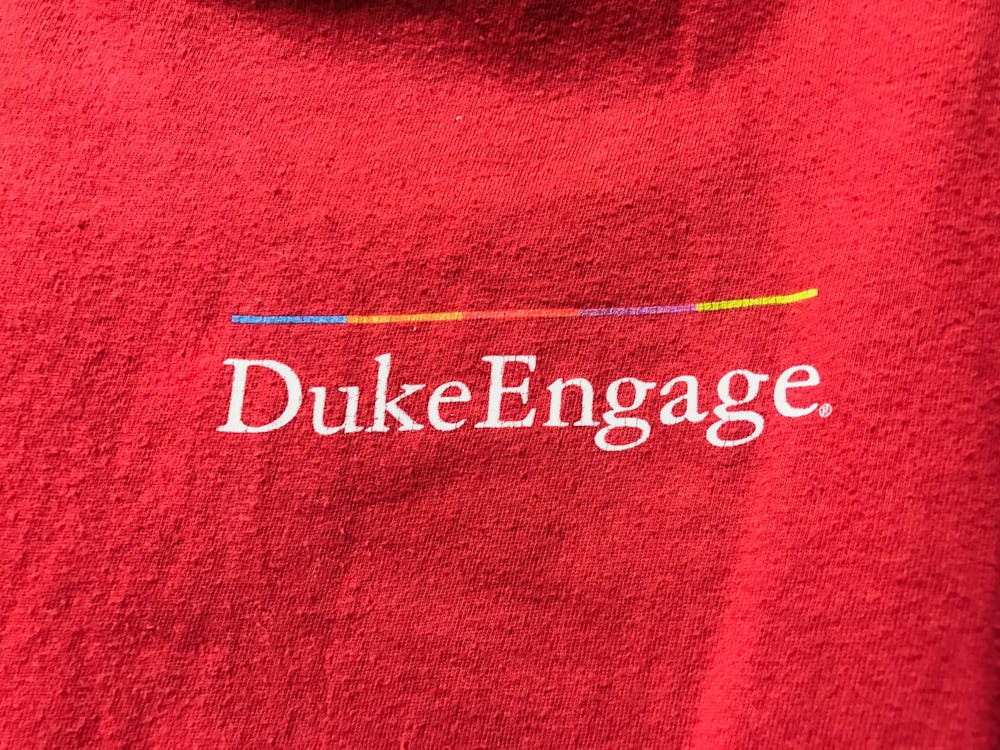In the wake of DukeEngage’s Summer 2020 cancellation, program directors and students have adapted to do research and community work from a distance.
Suzanne Shanahan, director of the Kenan Institute for Ethics, noted that the “biggest change is of course that students are working in place.” Although DukeEngage programs usually take place both domestically and abroad, “being embedded in and with community [is] not possible this summer and thus the experience is necessarily less culturally immersive,” Shanahan said.
Despite the cancellation of DukeEngage’s in-person experience, some program directors have tried to relaunch online. Although many changes have been necessary, critical program elements including training and reflection still exist.
Participants in the sustainable development and growth program—which was new this year—were planning to conduct their research on-site in Asuncíon, Paraguay. Instead, these students recently began the eight-week program from their homes in the United States, with the exception of an undergraduate collaborator from Swarthmore College located in her hometown in Paraguay.
Christine Folch, assistant professor of cultural anthropology and the project director, has been collaborating for months with the students to “relaunch,” both adopting a virtual format for the project and “[responding] to the COVID-19 moment.”
Because the coronavirus has exposed weaknesses in developing countries around the world, Folch proactively proposed to shift the program’s purpose towards envisioning a “post-pandemic Paraguay.”
The Itaipú hydroelectric dam—which bridges Paraguay’s border with Brazil—was the focus of the original project, with student teams in both countries planning to study the dam over the summer and provide recommendations going forward. The binational treaty governing the dam expires in 2023.
Folch’s project will mainly examine future policy scenarios and their economic and cultural ramifications both for Paraguayans and Brazilians, many of whom largely rely on the Itaipú dam for energy.
Folch said students, who are now free to conduct research on their own schedules with the exception of biweekly team meetings, will simulate the 2023 treaty’s negotiations from both Paraguay and Brazil’s perspectives. This will help them understand what’s at stake for sustainable development and could potentially inform policy recommendations.
However, the Paraguay DukeEngage program is unique in how it has chosen to continue collaboration with its original communities from afar, staying true to its original research goal. Other programs have weathered the storm differently.
Following the cancellation announcement, DukeEngage notified participants that they could receive a stipend for eight weeks of full-time work if they set up an internship with a local organization. Of the 110 students not working on remote projects via DukeEngage, 38 have taken advantage of this option.
One student is collaborating with the Sudan Memory Project to restore the country’s film archive. Another is working on a “know your rights” education program with the Latin American Commission’s Immigration Law Center, while another is working alongside the Island Foundation to develop a heavy-lift drone to mitigate invasive rodent populations on small islands in California, according to Shanahan.
Although students’ summer experiences are certainly different from their initial expectations, Shanahan noted that “if current predictions hold about the changing nature of work post-pandemic, an ability to develop relationships from afar will serve students well.”
Correction: An earlier version of this article incorrectly stated that a Duke student was working on the sustainable development and growth DukeEngage project from her hometown in Paraguay. It has been updated to reflect that it is a Swarthmore College student.
Get The Chronicle straight to your inbox
Sign up for our weekly newsletter. Cancel at any time.

